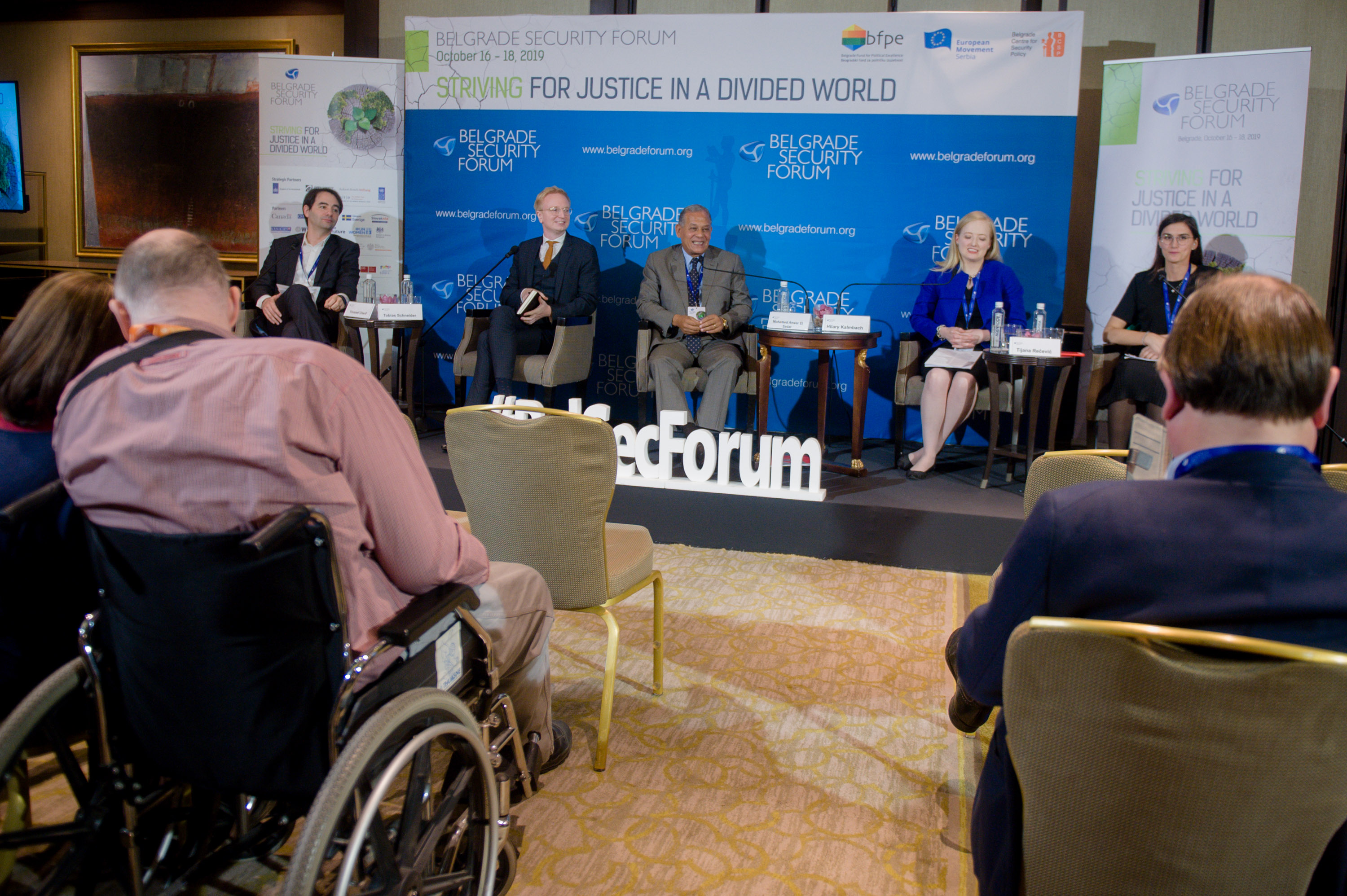MENA Region Still Sensitive to External Shocks
Reflecting on the events following the Arab Spring by the panel’s moderator Tijana Rečević, Faculty of Political Science opened the Session Winter of Discontent in the MENA Region. She explained that the perception of change in the region of Middle East and North Africa was first quite optimistic, but soon soured into despair. Following this, the moderator invited four speakers to provide their remarks.
First to give his opening remarks was Dr. Hilary Kalmbach. She is a cultural and social historian based at the University of Sussex and the founding director of MENACS, the Middle East and North Africa Centre at Sussex and a Past President of the Syrian Studies Association. As she closely studies culture and history, she highlighted the importance of both in the Mena region. Firstly, she explained the importance of history (even far away history like the crusades and the Mohammed, together with the history of colonization) and memory in shaping the future of this region. It is because of this history that democracy and other progressive ideas are considered as a Western intrusion. Secondly, she pointed out that the deeper emotional and cultural needs of the people are not meet by MENA regimes, as they focus only on the basic security, while not providing higher needs (as seen by the Maslov pyramid of needs).
Mohamed Anwar El Sadat, the president, Reform, and Development Party, followed this statement by pointing out that solving these challenges is important because „…we have the same challenges!“
He highlights the depth of political apathy in his country by noting that people do not feel like they are part of any policy, and therefore feel like they are not part of their countries society. He condemns the lack of free media and real institutions. However, he says that the „strongman“ model championed is not a longterm solution. Finally, he pointed out that the army is a big political and economic factor without any kind of monitoring or accountability in the MENA region.
Tobias Schneider, Research Fellow at the Global Public Policy Institute (GPPi) in Berlin, instead of focusing on Syria (which he points out is his main interest), spoke about Lebanon, saying that this nation suffers from a problem of being „… one of those countries that produce more history than it can consume“. He has spoken of social attrition in Lebanon, and the general feeling of despair and emotional depression. Mr. Schneider talked of the Lebanese perception of themselves as survivors, but also that the damage is cumulative and that their resilience cannot bear more.
„It is a system that cannot cope with external shocks“, he said for the MENA nations.
Youssef Cherif, Head of Columbia Global Centers, focused his speech on the Tunisian experience. He speaks of it as „the only democracy in the region“, but notices troubling trends. He explained that the EU is perceived to be supporting Tunisian democracy only as of the means to an end, that end being the prevention of terrorism and migrants. This is damaging the genuine support for democracy in Tunisia, weakening it and birthing conspiracy theories. He emphasizes that security concerns should not and must not eclipse democracy.
Finally, he talked about the way political Islamism, pointing out that in Tunisia not addressing Islamist extremists with oppression had rendered them irrelevant.
Mohamed Anwar El Sada spoke of reconciliation. He points out that there is a need for moderate Islamic institutions to reach out to young people in schools and even (especially) in prisons, saying that just fighting them with security measures doesn’t work.
In speaking of religious intolerance and its nonsensical origins, he warned that „something will happen in the Gulf soon, I am afraid… There are too many external players in the region”.








